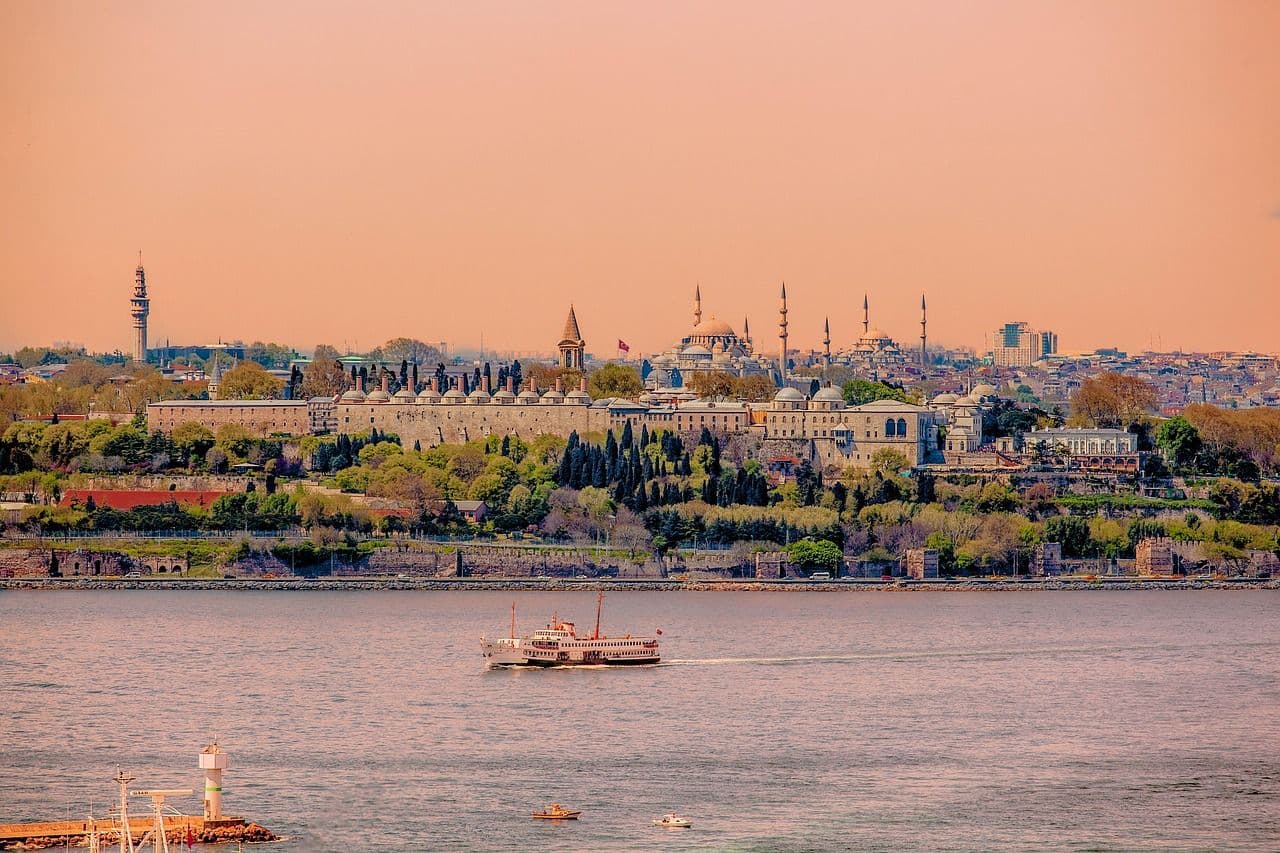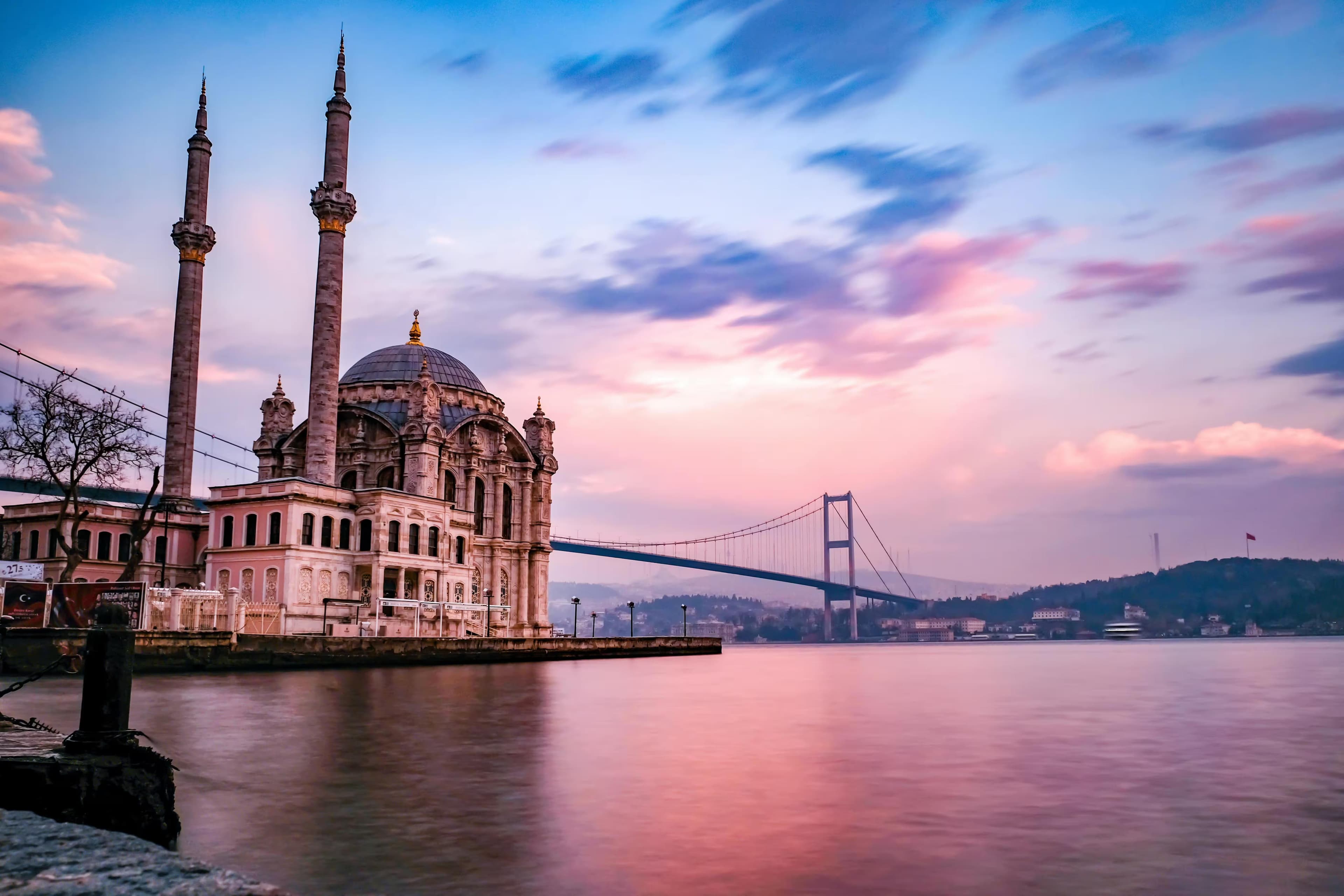People love visiting Istanbul because it feels magical in its own way. The city has history, culture, food, and energy that you just can’t find anywhere else. Most travelers head online to figure out what to see and how to get around, but often they run into long guides that feel overwhelming. By the end, it can be hard to find clear answers.
So let’s make things easier. Instead of scrolling through endless blogs, here’s a simple guide with quick answers to the questions travelers ask most. From what to eat and where to go, to how to move around and what to expect, these insights will help you plan your trip without the confusion.

1. Is Istanbul safe for tourists?
Yes, Istanbul is generally safe for visitors, and millions of tourists enjoy the city each year without trouble. The main concern is petty theft, so keep an eye on your belongings in crowded areas like bazaars, trams, or busy squares. Stick to well-lit and lively streets at night, and use official taxis or ride-hailing apps. Locals are friendly and helpful, which makes the city feel welcoming.
2. What is the best time to visit Istanbul?
The best times to visit are spring (April to June) and autumn (September to November). The weather is mild, gardens are in bloom, and sightseeing is more pleasant without the intense summer heat or winter chill. Summer can be very hot and crowded, while winter brings rain and sometimes snow, though the city looks magical under light snowfalls and offers fewer crowds at attractions.
3. What should I wear in Istanbul?
Comfort is key, as you’ll walk a lot. Casual clothes are fine in most places, but modesty is required when visiting mosques. Women should cover their shoulders, chest, and legs, and men should avoid shorts. Women also need a scarf to cover their heads inside mosques. Outside of religious sites, people dress in modern, Western-style clothing, so you’ll fit right in with smart-casual outfits.
4. What currency is used in Istanbul?
The Turkish Lira (TRY) is the official currency. Credit and debit cards are accepted in hotels, restaurants, and larger shops, but smaller markets and street vendors usually prefer cash. Carrying a little local currency is always helpful. You’ll find many currency exchange offices in the city, especially around tourist areas, and ATMs are widely available. Exchange rates can vary, so compare before exchanging.
5. How do I get around Istanbul?
Istanbul has an excellent public transport system, including trams, ferries, buses, and the metro. The Istanbulkart, a rechargeable travel card, works across all these services and makes getting around easy. Taxis are common, but ensure drivers use the meter to avoid overpaying. Walking is also one of the best ways to experience the city’s charm, especially in historic districts and along the Bosphorus.
6. Do I need a SIM card in Istanbul?
Getting a SIM card is very useful for navigation, translations, and booking rides. Providers like Turkcell, Vodafone, and Türk Telekom offer affordable tourist packages with data, calls, and texts. You can purchase one at Istanbul Airport or in city stores. Free Wi-Fi is available in many hotels, cafes, and restaurants, but having your own connection gives you more convenience and peace of mind.
7. What are the must-see attractions in Istanbul?
Istanbul is filled with landmarks that reflect its long history. Must-see sites include Hagia Sophia, the Blue Mosque, Topkapi Palace, and the Basilica Cistern. You should also explore the Grand Bazaar and the Spice Bazaar for a vibrant local experience. Galata Tower and Dolmabahçe Palace are stunning, while a Bosphorus cruise offers the best views of the city from the water.
8. What are the best neighborhoods to stay in Istanbul?
- Sultanahmet: Ideal for first-timers, close to major historic sites, but touristy.
- Beyoğlu/Galata: Vibrant, great for nightlife, cafes, and Istiklal Street.
- Karaköy: Trendy, artsy vibe with boutique hotels and waterfront views.
- Kadıköy (Asian side): Lively, local feel with markets and food scenes.
- Nişantaşı: Upscale, perfect for luxury shopping and dining.
Choose based on your preference for history, nightlife, or local culture. All are well-connected by public transport.
9. What local foods should I try in Istanbul?
Istanbul is a paradise for food lovers. Popular dishes include kebabs, pide which is like a Turkish pizza, meze plates, and the sweet pastry baklava. Simit, a sesame-covered bread ring, is a favorite street snack. You should also try balık ekmek, which is a fish sandwich, and döner wraps. Finish your meal with Turkish tea or coffee for a traditional and complete experience.
10. What language is spoken in Istanbul?
The official language in Istanbul is Turkish. In areas that are popular with tourists, you will often find people who can speak basic English, especially in restaurants, hotels, and shops. Outside of these places, English is less common. Learning a few Turkish phrases such as merhaba for hello and teşekkürler for thank you can help you connect with locals and is always appreciated.
11. What is the weather like in Istanbul?
Istanbul has four distinct seasons. Summers are hot and humid, with temperatures often reaching the high 80s Fahrenheit. Winters can be cold and wet, with rain and occasional snow, especially in January and February. Spring and autumn are mild, pleasant, and ideal for sightseeing. It is best to pack layers and comfortable walking shoes, and even in summer, carry a light jacket for cooler evenings.
12. Is Istanbul walkable for tourists?
Yes, many of Istanbul’s top attractions are close enough to explore on foot, especially around Sultanahmet where Hagia Sophia, the Blue Mosque, and Topkapi Palace are located. Streets can be crowded, and some areas are hilly, so comfortable shoes are a must. While walking works well in the historic center, you’ll still need trams, ferries, or taxis for longer trips between neighborhoods and across the Bosphorus.
13. Are there cultural norms I should know?
Yes, being aware of cultural norms makes your visit more enjoyable. When entering mosques, remove your shoes and dress modestly. Women should cover their heads with a scarf, while both men and women should wear clothes that cover shoulders and legs. Respect prayer times and avoid public displays of affection in religious areas. Tipping is common in restaurants, usually around five to ten percent.
14. Are there scams tourists should avoid?
Yes, tourists should stay alert. Some taxi drivers may refuse to use meters, while overly friendly strangers might offer unsolicited tours or take you to overpriced shops. Street games and inflated prices at markets are also common traps. Always use licensed taxis, shop in reputable places, and politely decline offers that seem suspicious. A little caution ensures a safe and enjoyable trip.
15. Do I need a visa for Istanbul?
Visa requirements depend on your nationality. Many travelers can obtain an e-visa online in just a few minutes, while some countries have visa-free entry for a limited stay. The process is simple and official through the Turkish government website. To avoid problems on arrival, check the most up-to-date visa rules before traveling and apply in advance if required.
16. What souvenirs should I buy in Istanbul?
Istanbul is famous for unique souvenirs that carry cultural charm. Popular picks include Turkish carpets, hand-painted ceramics, colorful mosaic lamps, and spices from the bazaars. Tea sets, copperware, and the symbolic evil-eye charms are also widely bought. The Grand Bazaar and Spice Bazaar are excellent places to shop, but bargaining is part of the tradition. Negotiate politely to enjoy both the shopping and cultural experience.
17. What is the best way to cross between Europe and Asia in Istanbul?
The ferry is one of the most scenic and affordable ways to cross between continents, offering stunning views of the Bosphorus. Travelers can also use the Marmaray metro line, which runs through an underwater tunnel, making the journey quick and convenient. Driving or taking a bus across the Bosphorus Bridge is another option, but ferries remain the most enjoyable and authentic experience.
18. Are credit cards widely accepted in Istanbul?
Yes, credit cards are commonly accepted in hotels, restaurants, and many shops across Istanbul. However, smaller vendors, street stalls, and some taxis may prefer cash. It is a good idea to carry Turkish Lira for small purchases or places off the main tourist trail. While cards like Visa and Mastercard are widely used, keeping cash on hand ensures smooth transactions everywhere.
19. Can I use public Wi-Fi in Istanbul?
Yes, Wi-Fi is available in most hotels, cafes, and restaurants across the city. Some tourist areas also provide public Wi-Fi, but the connection can be slow or less secure. For reliable internet access, many travelers buy a local SIM card with data or rent a portable Wi-Fi device. Staying connected is easy, but always be cautious with sensitive information on public networks.
20. What festivals or cultural events happen in Istanbul?
Istanbul celebrates a rich variety of festivals and cultural events throughout the year. The Istanbul Film Festival in April and the Tulip Festival in spring are local favorites. Art lovers enjoy the Istanbul Biennial, which showcases international works. Religious occasions like Ramadan bring special evening markets and community gatherings. With music, food, and cultural activities year-round, the city always has something festive to offer.
21. Is Istanbul family-friendly for kids?
Istanbul is very kid-friendly. Kids enjoy Bosphorus ferry rides, the spooky Basilica Cistern, or interactive museums like the Rahmi M. Koç Museum. Parks like Miniatürk or Yıldız Park are great for families. Turkish culture is welcoming to children, with many restaurants offering kid-friendly options like pide or döner. Street vendors selling simit or playful Turkish ice cream are a hit. Strollers may struggle on uneven streets, so plan accordingly.
22. Can I see both the European and Asian sides easily?
Yes, crossing between Istanbul’s European and Asian sides is simple. Ferries (e.g., Eminönü to Kadıköy, ~15 TRY, 20 minutes) are frequent, scenic, and affordable. The Marmaray metro (under the Bosphorus) or bridges like the Bosphorus Bridge (by bus/taxi) are other options. A day trip combining Sultanahmet (Europe) and Kadıköy’s markets (Asia) is very doable, with ferries being the most enjoyable way to cross.
23. Are guided tours worth it in Istanbul?
Guided tours are highly recommended. They provide context for complex sites like Hagia Sophia or the Topkapi Palace, saving time and enhancing understanding. Food tours in Kadıköy or Eminönü are great for sampling authentic cuisine with cultural insights. Small-group or private tours (starting around 200–500 TRY per person for half-day tours) are often more personalized than self-guided exploration, especially for history or food-focused experiences.
24. Are there free things to do in Istanbul?
Plenty of free activities await. Visiting mosques like the Blue Mosque, Süleymaniye, or Ortaköy is free (donations appreciated). Strolling through the Grand Bazaar or Spice Bazaar costs nothing unless you buy. Walking along the Bosphorus, Galata Bridge, or colorful Balat streets is free and scenic. Parks like Gülhane or Emirgan offer greenery without charge. Free walking tours (tip-based) are also popular for history buffs.
25. How many days should I spend in Istanbul?
Three to five days is usually enough to explore Istanbul comfortably. In this time, you can visit the main historical sites, take a cruise along the Bosphorus, shop at local markets, and enjoy authentic Turkish meals. If you have extra time, visit neighborhoods like Kadıköy or Balat, or take a day trip to the Princes’ Islands for a slower and more local experience.
Closing Thoughts
Istanbul is a city of timeless beauty where history, culture, and modern life meet. By preparing with these answers, you can enjoy your trip with confidence. From wandering ancient mosques to tasting street food by the Bosphorus, every moment offers something magical. Give yourself time to soak it all in.
